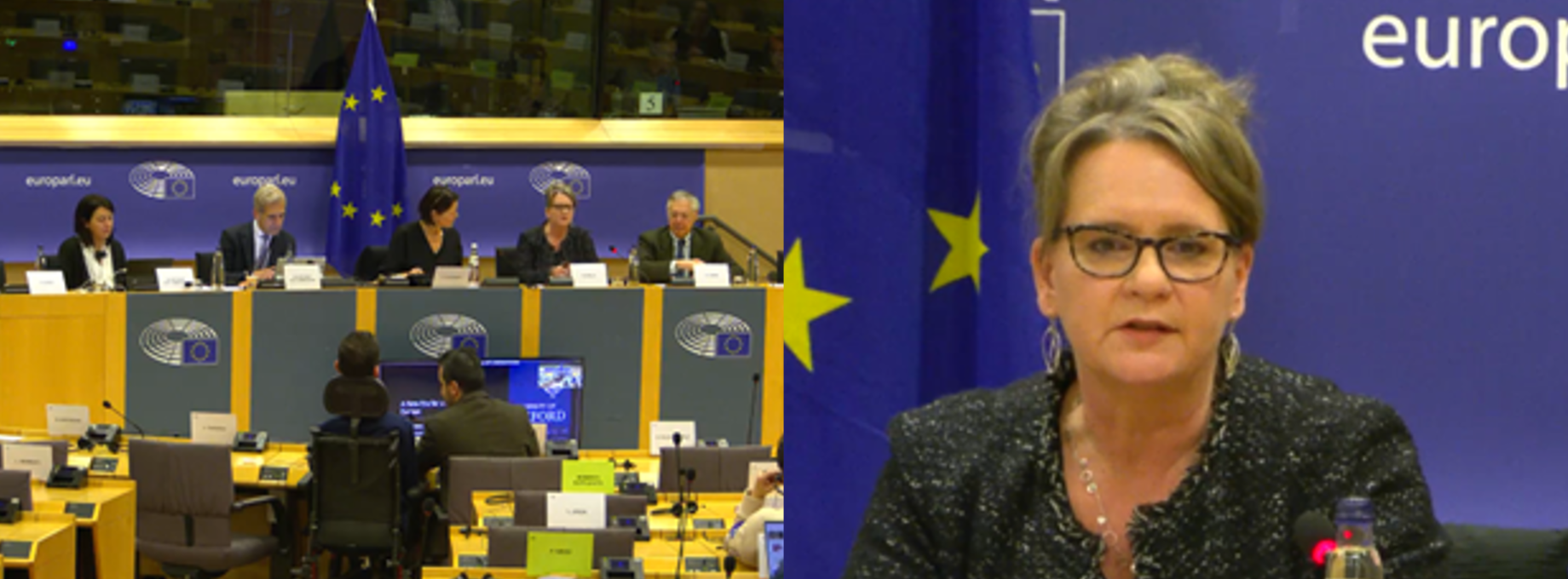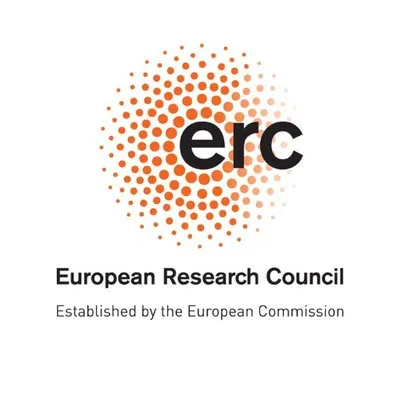Our Director of the Leverhulme Centre for Demographic Science, Professor Melinda Mills was invited to speak at the European Parliament’s Special Committee on COVID-19 pandemic on 29 November 2022.
Inequalities exacerbated by COVID
As a Special Advisor to the European Commissioner for Economy Paolo Gentiloni, Mills began by outlining the main conclusions of A New Era for Europe report she co-authored as part of a High-Level Advisory Group for the Commissioner. The report showed how the European Union could recover from the pandemic recovery but also acknowledged the different starting points and responses across Europe during COVID-19.
She noted, ‘COVID laid bare the many different inequalities within but also across different European countries. It exposed weaknesses in economies, in supply chains, the labour market and problems with interdependence of different nations.’
Mills added that these inequalities persist with record numbers of people forcibly displaced due to multiple crises such as the war on Ukraine, which has led to energy crises and fuel poverty in Europe.
Data-driven policy interventions
The Leverhulme Centre for Demographic Science has been at the forefront of COVID-19 research since the pandemic began. Mills and team have also translated the results of their scientific publications and data-driven approach into real-world policy interventions, recognised by a recent OR2B Impact Award.
In addition to her Special Advisory role to the European Commission, Mills volunteered her time during COVID for data-driven policy advice to the UK Government (SAGE, Number 10 Data Science Advisory Group), and Royal Society’s SET-C group.
A study authored by Mills and Centre team members in conjunction with the Royal Society and British Academy, was also instrumental in shaping government policy on face coverings during the pandemic. Her work on whether COVID certificates impacted vaccine uptake and other factors (Lancet Public Health), was used as evidence for policy-making by multiple governments.
In her European Parliament exchange, Melinda made reference to the Centre’s COVID-19 research into trust, misinformation and political polarisation, intergenerational contact, and the pandemics effect on life expectancy and different groups.
Post-COVID labour market and the EU’s Recovery and Resilience Facility
Mills added, ‘COVID impacted youth, lower skilled workers, and those on temporary contracts in a much deeper way. Many workers left the hospitality sector, shifted sectors or withdrew entirely, with many EU countries now experiencing labour shortages.’
While COVID-19 accelerated working from home, Mills suggested that more needed to be done to improve infrastructure, policies, and equality in this new way of working.
‘As we emerge out of the pandemic and towards the goal of fair transition to the digital and green economy in the EC’s Recovery and Resilience Facility, we need to invest in reskilling and develop policies that grasp new forms of digital and flexible employment and for employers to re-evaluate security, productivity and attractive conditions for employees.’
She also presented work from her ERC CHRONO research team showing that people who were unable to work from home and follow social distancing measures because of their occupation or housing situation had higher rates of infection (BMJ Open). Women were more often in occupations that led to health and sleep problems (BMJ Open), and highlighting award-winning work from the Centre, showed that they were more likely to carry the burden of home schooling and the longer-term impacts on children (PNAS).
Mills argued that the European Parliament’s gender equality in the Recovery and Resiliency Facility needs to go beyond gathering four indicators – number of female researchers, in education/training, in employment/job search, and 15-29 receiving support – to more disaggregation and unpacking the real issues of type of educational degree and occupation underlying structural gender inequalities in pay and labour market outcomes.
Urgency of Pandemic Preparedness
‘In order to examine and monitor key issues facing Europe, we need better, open and faster data. As part of the digital transition, the EU has the opportunity to digitalise public systems, harmonise data and have agile data and monitoring systems in place for monitoring. Here we also need stronger partnerships with industry, who hold vast amounts of data.’
Mills concluded that many countries with supposedly the highest pandemic preparedness (2021 Global Health Security Index) had the highest levels of death per 100,000 population. Here she noted future work being undertaken by her and her team within Oxford’s Pandemic Sciences Institute.
‘We need to stop and think about pandemic preparedness. The COVID-19 pandemic is our wake up call. Now is the time to redirect resources, counter inequalities, and improve data and policies so that we do not sleep walk into the next crisis.’





